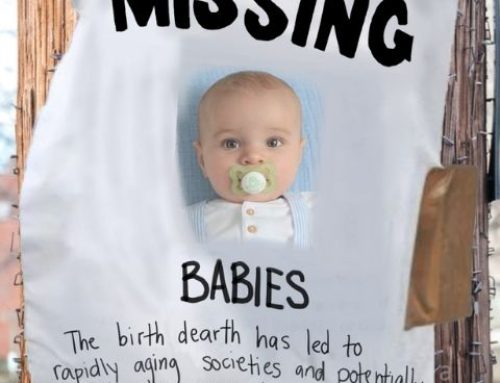
Zuza Kurzawa
Interim reporter Pauline Kosalka interviewed Zuza Kurzawa, a Queen’s student arrested at Carleton University in October for participation in a GAP demonstration, by email. Kurzawa was a 2009 Fr. Ted Colleton Scholarship winner.
The Interim: Why did you enter the 2009 Father Ted Scholarship contest? What was your essay about? What especially did you want to convey to the readers?
Zuza Kurzawa: I initially entered the contest under the recommendation of a philosophy teacher in my high school. We had devoted a lot of class discussion to pro-life causes and, knowing my convictions, suggested I participate. My essay discussed the theme of spiritual starvation. What I tried to convey was the relationship between spiritual starvation and its effect on the perversion of truth. When blinded to truth, people fail to recognize the humanity of their fellow man. In the issues of abortion and euthanasia particularly, people have refused the humanity of those affected; unless their hearts become open to truth, these injustices will never be solved.
TI: Were you involved in the pro-life movement before you wrote the essay?
ZK: I was involved with pro-life initiatives a little in high school, in the sense that I attended the March for Life, but I did not actively participate. Although I knew I was pro-life, I did not actualize my beliefs until university, whereby I joined the campus pro-life group. I suppose the main reason why I am so struck by the pro-life movement is because it seeks to affirm dignity and truth. In fighting these culture wars, I knew that being quiet about truth would just perpetuate the injustice.
TI: You currently attend Queen’s University. Are you a member of pro-life organizations on campus? How are pro-lifers treated by the university?
ZK: I am the President of Queen’s Alive, the campus pro-life group. In general our club is accepted. There were a few problems after I returned from the Carleton GAP, but no one has openly tried to de-ratify our club.
TI: How did you come to participate in the GAP pro-life demonstration at Carleton University on Oct. 4? Why did you participate?
ZK: A member of Queen’s Alive knew students at Carleton and extended the invitation for us to participate. I decided to participate because I hadn’t to date tried graphic displays. Hearing the testimonies about the fruit of GAP, I knew it was something I had to try. I also knew the students would need support, and so I decided to participate.
TI: What is GAP about?
ZK: The Genocide Awareness Project is a graphic display that compares aborted fetuses to victims of other genocides. Within all genocides, all victims are denied personhood, seen as burdens, killed systematically and in mass numbers. GAP shows why the comparison between abortion and other genocide victims is reasonable. Because it is so contentious, it always attracts attention and has also (come) to be known as one of the most effective ways of changing pro-choice hearts to pro-life ones.
TI: Carleton University refused to let the GAP demonstration go on as planned at the Tory Quad and ordered that it be moved to Porter Hall. Why did you decide to protest against the decision? Were you aware that you might face disciplinary measures?
ZK: Initially, Carleton booked the Tory Quad months in advance, only to be notified that the display was to be moved to Porter Hall. Because Porter Hall was a low-traffic area on campus, it seemed evident that this was a blatant attempt at censorship. Sensitive to our right to free speech, Carleton Lifeline decided to proceed with the display as initially planned. We were aware that we could face disciplinary measures, but that was a risk we had to accept.
TI: Why do you think the university found the GAP display so controversial? Do its actions demonstrate a double standard?
ZK: Abortion is not an issue people enjoy talking about. I suppose worried by student response, the University decided to censor the message. However, masking it as an “offensive display” does not address the fact that Canadians are entitled to free speech. Given that “offensive” is such a subjective term, it seems (strange) that this is so often enforced. Although graphics are never pleasant, they are effective. No one wants to look at the blackened smoker’s lung on cigarette packets, but those images speak truth about the effects of smoking. Likewise, abortion isn’t pleasant to look at, but seeing it, introduces many to the injustice of abortion. It is interesting, if abortion is so celebrated as a fundamental right, why can we not show it? If it is legal to do, why is it illegal to show?
TI: Were you surprised that you got arrested? What happened next?
ZK: I suppose I didn’t truly accept that we might be arrested that day, but I was prepared for it. After we were handcuffed, we were taken to a place on campus, interrogated, and fined on two accounts. We are fighting these charges. After this, we wrote press releases and responded to media queries. In a way, the fruit of the arrest was quite great. (As a result of the) efforts to silence our message, we were able to bring the issue of abortion into public discussion. The greatest obstacle for the pro-life movement is this disease of silence. If we are ever to make abortion unthinkable, we need to discuss it first. It is ridiculous that sometimes it takes something like this for anyone to care, but using graphics has proven to be the only way to shake the pervasive malaise.
TI: What was the reaction to the arrests by other campus pro-lifers and the student body in general?
ZK: The reactions were mixed. In general, even if people disagreed with our message, they supported our right to speech. Back at Queen’s, some were very supportive of the initiative. Others misinterpreted the message (which I did expect), and at one point accused me of being insensitive to genocide. But many other students were intrigued by my conviction(s) and openly sought to learn. And so, I organized pro-life apologetics sessions which went very well.




